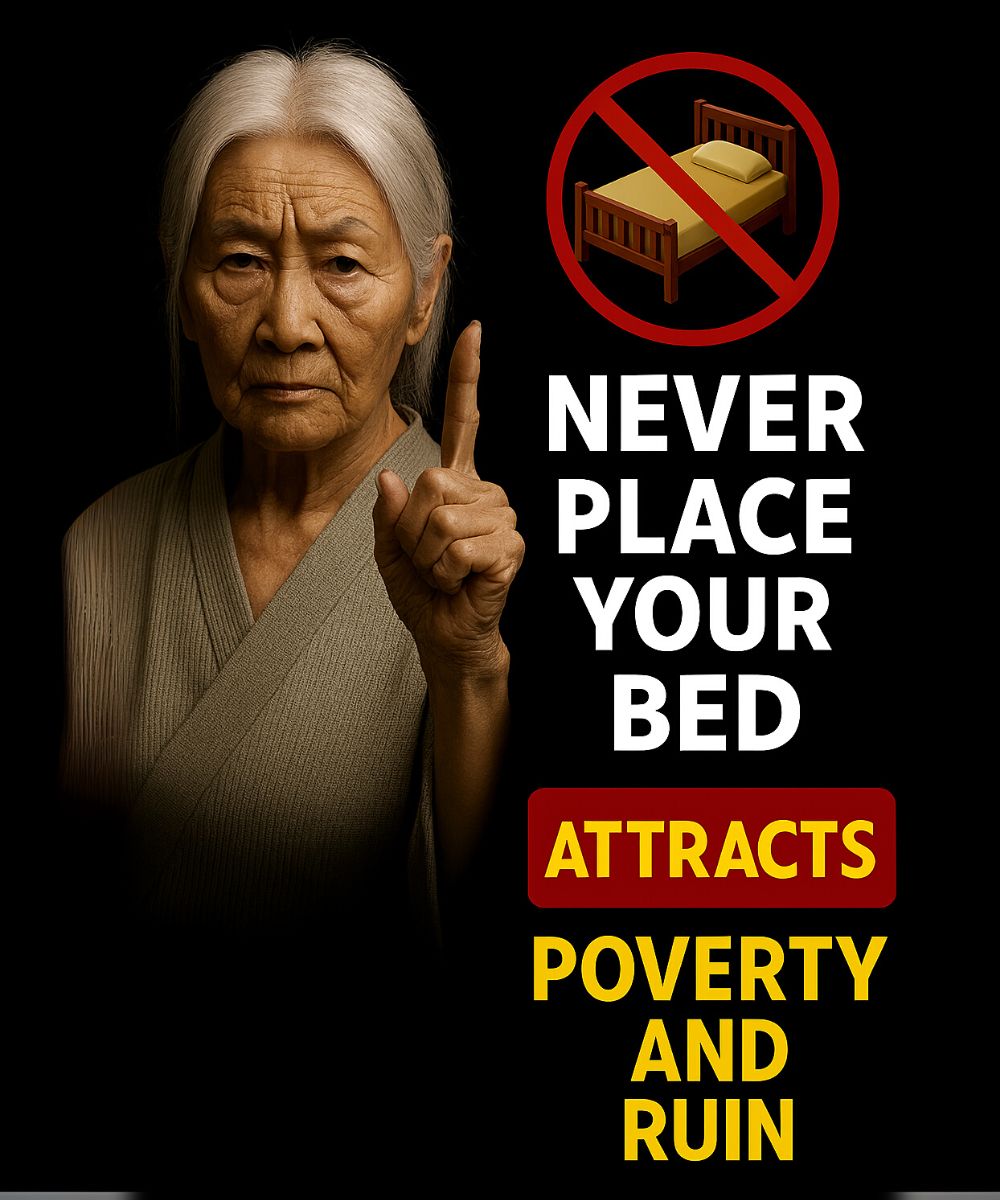Feng Shui, an ancient Chinese philosophy that focuses on harmonizing living spaces to promote prosperity, health, and overall well-being, has once again become the subject of online debate thanks to a viral social media post. The image, which has been widely shared, shows an elderly woman with a stern expression warning that placing your bed in a certain position can “attract poverty and ruin.”

While the statement may sound like an old superstition, it is rooted in one of Feng Shui’s most well-known rules regarding bedroom arrangement. According to Feng Shui principles, the “forbidden” position is when the bed’s headboard faces the door so that your feet point directly toward it when lying down. This layout is known as the “coffin position” because it symbolically mirrors how a body is traditionally carried out of a room—feet first. Practitioners believe this setup is not just symbolic but energetically harmful, as it supposedly allows vital energy, known as Chi, to escape while you sleep. The belief holds that this position can lead to several negative effects, including financial difficulties, emotional instability, poor-quality sleep, increased stress, and even illness.
In Feng Shui philosophy, energy moves through spaces like a flow of invisible currents, and having your bed aligned with the doorway creates a direct path for energy to rush in and out, which can leave the sleeper vulnerable and energetically depleted. For those who wish to follow Feng Shui to avoid these supposed consequences and invite more abundance into their lives, there are clear guidelines on how to position the bed. Ideally, the headboard should rest firmly against a solid wall, providing a sense of stability and protection. The bed should also be placed away from doors and windows to prevent disruptive energy flow while sleeping.
If the room’s layout makes it impossible to avoid having your feet face the door, Feng Shui experts recommend placing a physical barrier between the bed and the doorway. This could be a folding screen, a curtain, or even a tall plant, all of which are thought to help slow down and redirect the movement of energy so that it does not rush straight toward you. Another important tip is to keep the space under the bed clear of clutter or storage items, as blocked or stagnant Chi beneath you while you sleep is believed to interfere with rest and diminish vitality. While there is no scientific evidence to prove that bed orientation has a direct effect on wealth, emotional balance, or physical health, many people claim to notice positive changes when applying these principles. Some report improved sleep quality, a greater sense of emotional stability, or even better luck in their personal and professional lives.
Whether these results come from the actual movement of energy or from the psychological benefits of creating a more organized and calming environment, the outcome can still be meaningful. Feng Shui, even for those who do not subscribe to its mystical aspects, can serve as a practical approach to thoughtful interior design. The philosophy encourages awareness of how space impacts mood, rest, and daily living, reminding us that our environment can subtly influence how we feel. A bedroom arranged with intention—one that feels secure, balanced, and free from unnecessary visual or physical obstructions—can foster a sense of peace and relaxation, which in turn supports overall well-being.
The dramatic tone of the viral image may have sparked intrigue through fear-based language, but the takeaway goes beyond superstition. The placement of your bed, along with the overall arrangement of furniture, can influence comfort, perception of safety, and mental clarity. Even if you do not believe in the concept of Chi, aligning your bed according to Feng Shui principles might still improve your space by making it feel more harmonious and restful. Ultimately, following these guidelines costs nothing and carries no real risk, so it may be worth trying if it helps you feel more at ease in your home. While the “coffin position” might not literally drain your life force or bring financial ruin, avoiding it could be one more step toward creating a bedroom that supports restful sleep, renewed energy, and a calmer state of mind.





